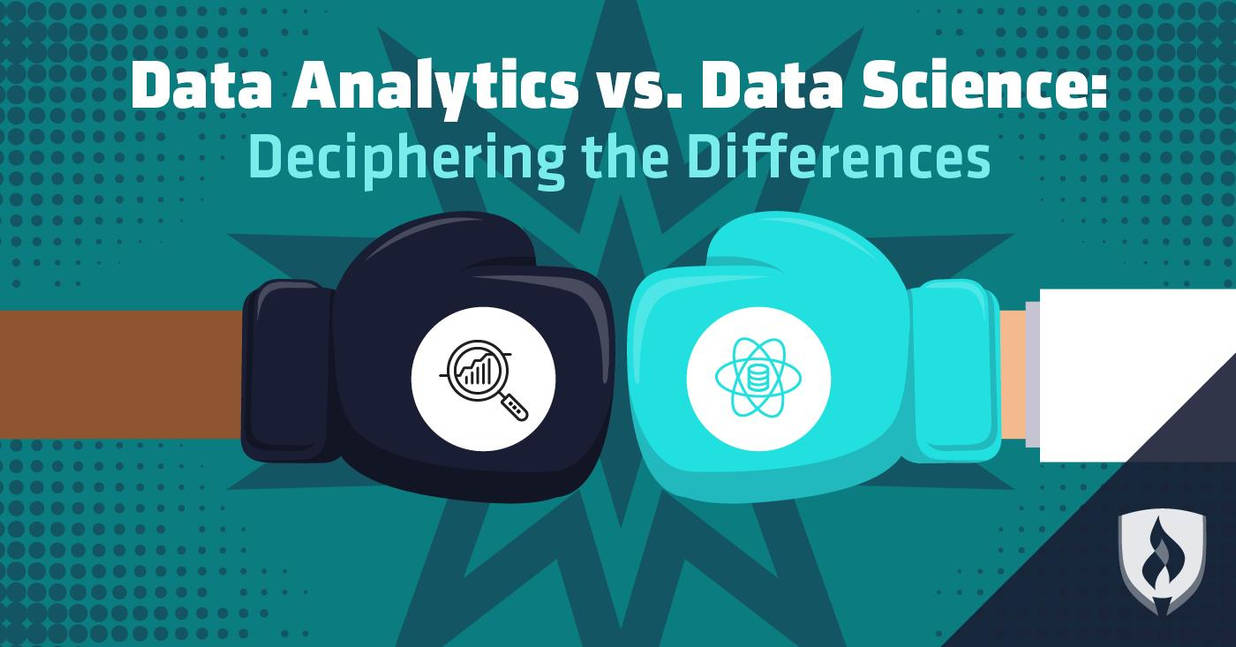Data science and data analytics: people working in the tech field or other related industries probably hear these terms all the time, often interchangeably. However, although they may sound similar, the terms are often quite different and have differing implications for business. Knowing how to use the terms correctly can have a large impact on how a business is run, especially as the amount of available data grows and becomes a greater part of our everyday lives.

What is Data Science?
Data science is a multidisciplinary field focused on finding actionable insights from large sets of raw and structured data. The field primarily fixates on unearthing answers to the things we don’t know we don’t know. Data science course experts use several different techniques to obtain answers, incorporating computer science, predictive analytics, statistics, and machine learning to parse through massive data sets in an effort to establish solutions to problems that haven’t been thought of yet.
what is Data Analytics?
If data science is the house that holds the tools and methods, data analytics is a specific room in that house. It is related and similar to data science, but more specific and concentrated. Data analytics is generally more focused than data science because instead of just looking for connections between data, data analysts have a specific goal in minding that they are sorting through data to look for ways to support. Data analytics is often automated to provide insights in certain areas.
Data analysis involves combing through data to find nuggets of greatness that can be used to help reach an organization’s goals. Essentially, analytics sorts data into things that organizations know they know or know they don’t know and can be used to measure events in the past, present, or future. Data analytics often moves data from insights to impact by connecting trends and patterns with the company’s true goals and tends to be slightly more business and strategy focused.
Even people who have some basic knowledge of data science have confused the data scientist and data analyst roles. So, what’s the difference between a data scientist and a data analyst? Both work with data, but the key difference is what they do with this data.
Data Science and Data Analytics
Scope Macro Micro
Goal To ask the right questions Find actionable data
Major
Fields Machine learning, AI, Healthcare, gaming,
search engine engineering,
corporate analytics travel, industries with immediate data needs
Using Big Yes
Data Yes
Data analyst vs. Data Scientist –Salary
It comes as no surprise that data scientists earn significantly more money than their data analyst counterparts. The average salary of a data analyst depends on what kind of a data analyst you are – financial analysts, market research analyst, operations analyst or other. According to a salary survey report by Bureau of Labor Statistics(BLS) in 2012, the average salary of market research analysts is $ 60,570, operations research analyst on average earn $70,960 and an average salary of a financial analyst is $74,350. BLS anticipates the analytics job market to grow by 1/3rd by 2022 with approximately 131,500 jobs. As of 2016, entry-level salary for a data analyst ranges from $50,000 to $75,000 and for experienced data analysts it is between $65,000 to %110,000.
The median salary for data scientists is $113,436. Average Data scientist salary in the US or Canada is $122K while data science managers leading the data science team at an organization earn an average of $176K.
Data analyst vs. Data Scientist –Responsibilities
Data Analyst Responsibilities
- Writes convention SQL queries to find answers to complex business questions.
- Analyze and mine business data to identify correlations and discover patterns from various data points.
- Identify any data quality issues and partialities in data acquisition.
- Implements new metrics for finding out formerly not so understood parts of the business.
- Map and trace the data from the system to system for solving a given business problem.
- Coordinates with the engineering team to gather incremental new data.
Data Scientist Responsibilities
- Become a thought leader on the value of data by finding new features or products by unlocking the value of data.
- Data Cleansing and Processing -Clean, Massage and organize data for analysis.
- Identify new business questions that can add value.
- Develop new analytical methods and machine learning models.
- Correlate disparate datasets.
- Conduct causality experiments by applying A/B experiments or epidemiological approach to identify the root issues of an observed result.
Conclusion
More work goes into becoming a data scientist than a data analyst, but the reward is a lot greater as well. If you excel in math, statistics, and programming and have an advanced degree in one of those fields, then it sounds like you’d be a perfect candidate for a career in data science Certification
However, if you are early in your career and are great with numbers but still need to hone your data modeling and coding skills, then you’d be better suited for a job as a data analyst. You can think of a data analyst as a stepping stone to becoming a data scientist if that is your final goal.
Take the Leap Towards Excellence - Enroll in the Best Data Analyst Course Today!
 REGISTER FOR FREE WEBINAR
X
REGISTER FOR FREE WEBINAR
X
 Thank you for registering
Join Edureka Meetup community for 100+ Free Webinars each month
JOIN MEETUP GROUP
Thank you for registering
Join Edureka Meetup community for 100+ Free Webinars each month
JOIN MEETUP GROUP